If the Church had stood up against slavery, ‘we may not be here,’ SBC pastor says
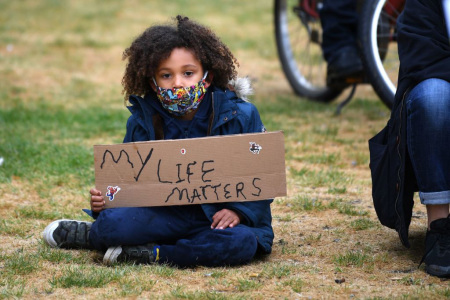
The Southern Baptist Convention’s Executive Committee held a one-hour conversation on “race in America” with black church leaders Wednesday to listen and learn, and discuss the Church's response to racial inequalities that are still affecting communities today.
Executive Committee President Ronnie Floyd, who is white, convened the online video conference with five black SBC pastors from different regions of the country to have a “biblical conversation about race in America and the implications it's having on the churches of our Southern Baptist Convention and our Great Commission work that we are doing together.”
About 25 years after the largest Protestant denomination in the U.S. apologized for its support for slavery during its founding, Floyd said that today, about 23% of SBC churches are “non-Anglo churches,” with 4,000 of the denomination’s 47,500 churches being African American churches.
“As we are growing in racial diversity as a convention of churches, it is important that we listen to one another and to learn from each other,” Floyd said. “We are walking through some very difficult times in American life as racial tension and strife continue to rise to levels of great concern for each of us. I believe that the church of Jesus Christ must answer this moment in American history and this is why we are having this conversation together today.”
K. Marshall Williams, the senior pastor of Nazarene Baptist Church of Philadelphia, suggested during the conversation that America might not be in the situation it's in today when it comes to racial issues had the Church done more to speak out against racism and slavery.
“Linked up with what we are dealing with today, I agree with Tony Evans. If the Church would have stood up for righteousness and justice rather than oppression and slavery back in the day, we may not be here,” Williams, who has served at his church for over 30 years, said.
“I think it is imperative on the Church today, especially cooperatively and all of us of all ethnicities, especially our brethren of the lightest hue, to be able to speak to their concentric circle of contact, their sphere of influence, where laws are made that are deliberately contributing to institutional and systemic racism.”
Williams added that what the U.S. is facing today in its push forward for racial equality is “spiritual warfare.”
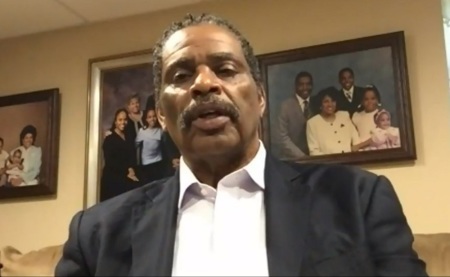
“Unless hearts change, nothing will change in America,” he said. “In other words, we are wrestling not against flesh and blood. We got to commit ourselves to persistent, passionate prayer, fasting in prayer. Then, plan and then process and implement that to which God tells us to do, that we might be an ocular demonstration, a depiction or illustration of what a kingdom citizen looks like.”
Williams stressed that the “world is waiting for us to come together."
“If the truth be told, this is just a dress rehearsal for when we get around to the crown,” he said.
“I think God may be stripping us. I don’t know about you, I believe this is a stripping time for me, a pruning time for me, a time of in the refiner's fire, that God would really see what He has as far as the Church of the Lord of Jesus Christ.”
Willie McLaurin, the vice president of Great Commission relations and mobilization of the SBC Executive Committee, said that he feels part of the responsibility is to “plot a path forward for future generations.”
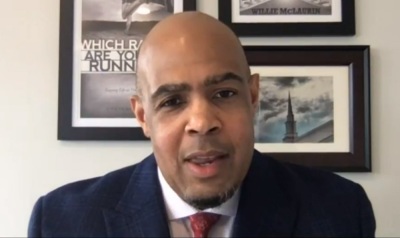
“I think we have to answer the question, ‘Are we going to be a thermometer or are we going to be a thermostat?’” McLaurin said. “I think for so long, we have been comfortable being a thermometer. But a thermostat controls the waves and controls the moves and controls the temperature.”
He stressed that one of the things that needs to happen is that the SBC needs to “develop a leadership pipeline.”
“We have got brothers and sisters who are more than qualified to serve our convention,” McLaurin stressed. “We have got to develop a pipeline with those folk and we have to have them available so that when positions and opportunities present themselves, we got a list of folk that all we’ve got to do is recommend them and follow that process and support them when we get them in those roles and positions. That is the first step for us.”
Kevin Smith, the executive director of the Baptist Convention of Maryland/Delaware, agreed that their needs to be a leadership pipeline. However, he went a step further to stress that their needs to be a greater emphasis on discipling lay members of the church to be effective disciples of Christ in their spheres of influence and communities. He called it “one of the vicious leadership issues” the denomination is facing.
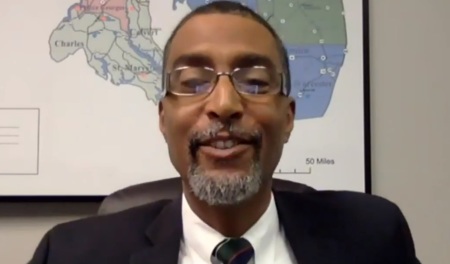
“On the one hand, we need pipelines in regards to people who have not had opportunities to engage in pipelines before,” he added. “But the greater deficit in Southern Baptist witness is the salt-light influence of the brothers and sisters in our pews who are able to be Nehemiahs, Deborahs and Esthers and Priscillas out in their communities, out in the economy, people who are entrepreneurs, people that have hiring power.”
“We are the largest Protestant denomination in the U.S.,” Smith added. “So at some point, we can influence whether a righteous or just person is elected as a local district attorney or whether a political crony is elected as local district attorney. A whole lot of issues that involve those kinds of things. We need to examine the breadth of our leadership pipeline as regards to people in vocational ministry, missionaries and pastors. But we more so need to examine the breadth, or even the lack of, the existence of discipling our members that they might be salt and light influences in the communities in which they live.”
Smith warned that there is a sense that “much of this stems from the pulpit” because “pastors have not been challenging members in prophetic ways to be followers of Jesus Christ.”
“The pipeline that is hurting us as in regards to race in America, in regards to a lot of things in America — materialism, greed, consumerism — is discipling members in such a way that when they go out into the community that they are different than other people,” he said.
Charlie Dates, the senior pastor of Progressive Baptist Church of Chicago, said the conversation on race in America is “tiring.”
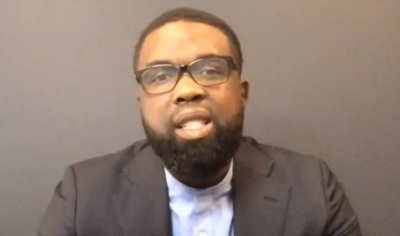
“It is not simply tiring because of the events of recent weeks,” he said. “It’s tiring because it has been a 401-year struggle for African American people in this country. It is one that is tethered and underpinned by a kind of theological imperialism. Part of my preaching, quite frankly, is the deconstruction of a theology that is insufficient to address today.”
Dates said that he understands preaching to be the “steering wheel and the accelerator.”
“I don’t see the movement progressing aside from preachers being at the front of the movement. If persons who proclaim the Gospel of Jesus Christ are not at the front lines of strategy and demonstration, then the world will simply be blowing hot air in trying to breathe change,” Dates said.
“We need those who are filled with the spirit of God, not to abdicate our role and authority, but also not to marginalize people who are already on the borders. To lock arms with people who may not even understand the Gospel as we do but can demonstrate the Gospel in power and in witness in leading them in peaceful protests.”
Rolland Slade, the senior pastor of Meridian Baptist Church of El Cajon, California, was elected as the first-ever African American chairman of the SBC Executive Committee on Tuesday.
During the conversation, Slade said that his election sends a good message to the denomination.
“It says that if you do work, God will not only reward you, you will have the support of all of the folks who you are working with,” Slade said. “I believe that my election yesterday said that. It was a unanimous vote by all of the executive committee. The message that I have received since then, everyone has said, ‘We are with you, 100%. We love your spirit and we love your attitude. We want to work with you and Dr. Floyd to further the convention.’ I feel 100% supported.”
Follow Samuel Smith on Twitter: @IamSamSmith
or Facebook: SamuelSmithCP





















